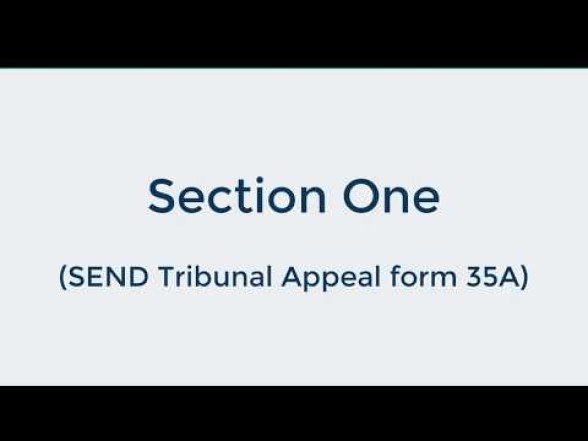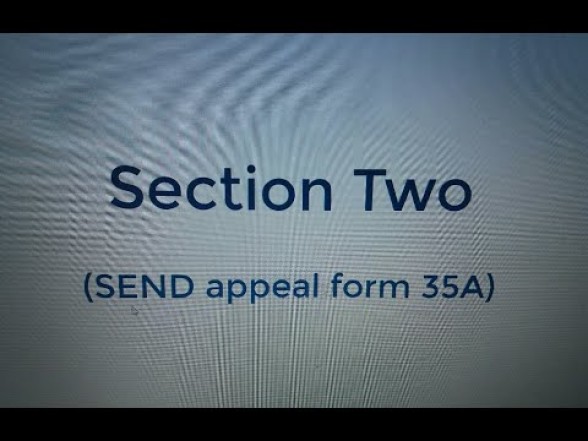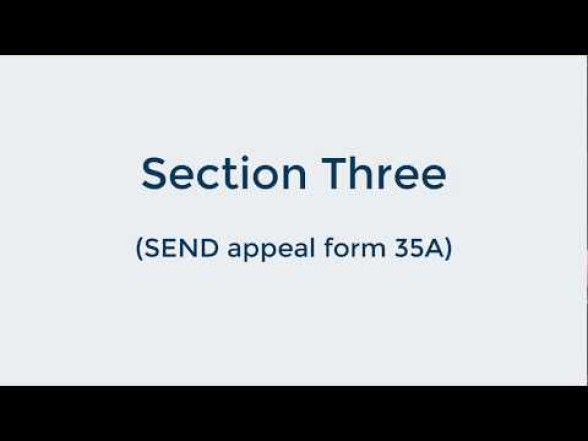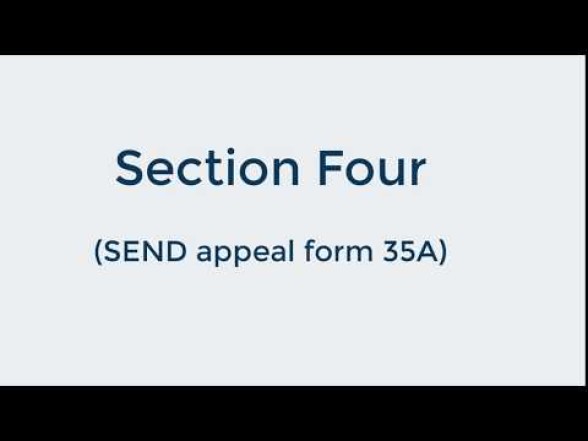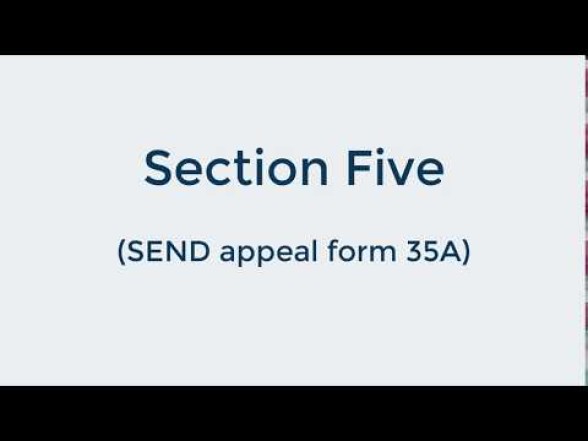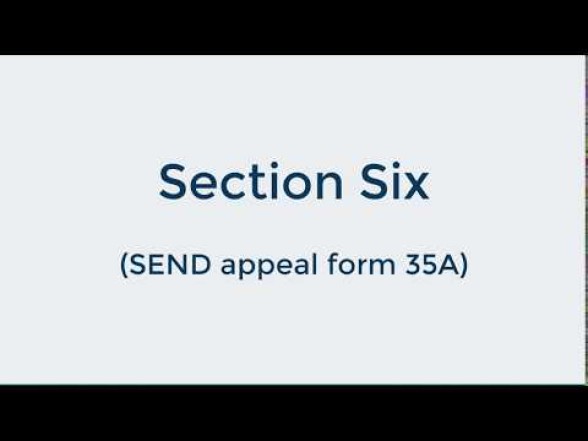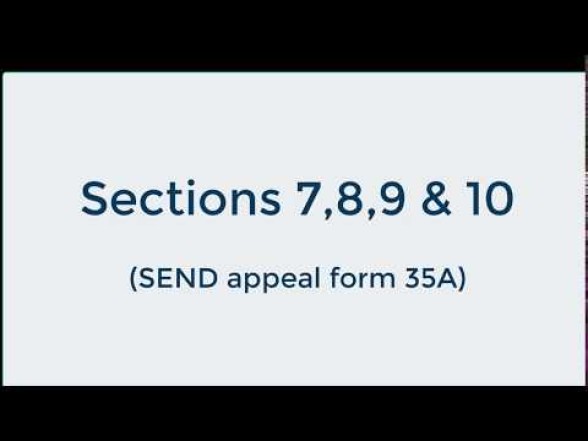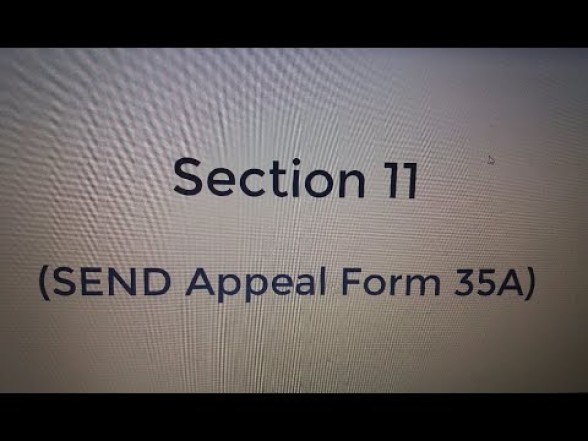How to complete an RTA Appeal form
Email this pageYou will need to set out your reasons for appeal in section 2 of the SEND 35a appeal form. The appeal form asks two questions, which reflect the two parts of the legal test in section 36(8) CFA 2014
whether the child or young person has or may have special educational needs (“SEN”); and whether it may be necessary for special educational provision to be made for the child or young person in accordance with an EHC plan.
To show the legal test has been met, you can argue that:
1. a full EHC needs assessment is the only way to find out what the difficulties are and what help is needed
2. the education setting may not be able to supply all the educational help needed unless it receives extra help from your LA, or
3. the education setting has provided all the help that could be expected but not enough progress has been made even with all the extra help.
Think about which of these three approaches feels similar to your situation and this will help you to answer the questions on the appeal form
Keys tips on completing the form:-
- Give sub headings, for example to explain how your child fits into the broad areas of need
- Refer to any supporting documents throughout the appeal form and make sure they are labelled clearly
- Focus on the legal test and how both parts of the test are met, and back up your points with evidence.
- Provide relevant information only - if there has been a long history of difficulties you can provide this in letters and reports, and if you don't have all your evidence ready with the appeal form, you can continue to submit evidence after your appeal has been registered with the SEND Tribunal.
Here is the Refusal to Assess SEND 35a appeal form
Question 1: Does your child or young person have SEN?
• describe any special educational needs that your child or young person has, and
• describe any special educational needs which your child or young person may have, which have not yet been fully identified.
It is important to remember you only have to show that your child or young person ‘may’ need special educational provision to be provided in accordance with an EHC plan, not that this is probably or definitely the case.
SEN covers a wide range of needs, and a child can be progressing academically and still have difficulties in other areas. The SEND Code of Practice talks about the four “broad areas of need” (paras 6.28-35):
- communication and interaction
- cognition and learning
- social, emotional and mental health difficulties
- sensory and/or physical needs.
You can think about how your child's difficulties fit in with some of the broad areas of need and set out your response within these sub headings.
Question 2: Whether the child or young person may require an EHC plan?
The SEND Code of Practice 2015 contains further detail on what the LA should consider when deciding whether or not to carry out an EHC needs assessment.
“In considering whether an EHC needs assessment is necessary, the local authority should consider whether there is evidence that despite the early years provider, school or post-16 institution having taken relevant and purposeful action to identify, assess and meet the special educational needs of the child or young person, the child or young person has not made expected progress.”
(9.14)
You can evidence your child or young person's attainment or lack of expected progress:-
- in context with other children of the same age group
- some progress has been made but school are unable to sustain the level of support given
- the school are providing a lot of support which is far over and above what normally would be provided in a mainstream settings without an EHC plan (obtain the evidence to support this)
It is important to remember, progress should not be limited to academic attainment, there may be wider needs which are having an impact to your child’s learning.
Consider all your child’s needs, what support they have had, for how long, and what impact (if any) the support has had ie. have the desired outcomes from targeted support been achieved?
Schools are also required to publish an SEN Information Report containing detailed information about the support and policies applicable to children with SEN and disabilities at the school (this is set out in Schedule 1 to the SEND Regulations 2014). This should be available on the school website.
An EHC plan is only necessary where your child or young person’s needs cannot be met by the education setting through SEN Support. You need to explain why that may be the case and provide supporting evidence. Remember, you do not have to prove that an EHC plan is definitely necessary, only that it 'may' be necessary
Explain why you think your child may need an EHC plan and what difference an EHC plan could make. Give examples of when the school have been unable to meet your child's needs and any potential risk of the appropriate support not being in place. Examples of a child's need not being met could result in a reduced timetable, suspension or offsite direction or may lead to a permanent exclusion.
A series of videos from Suffolk SENDIASS explaining how to complete the SEND 35a appeal form section by section:-

